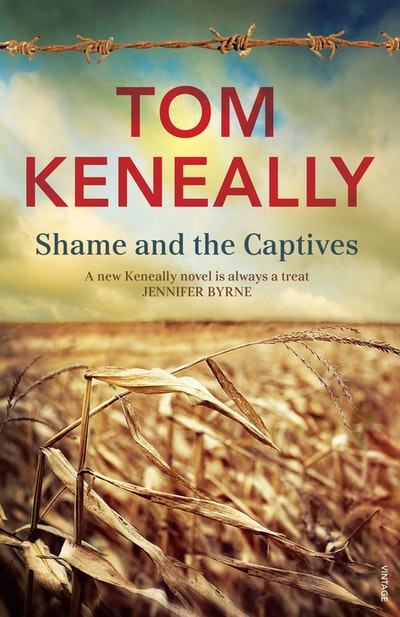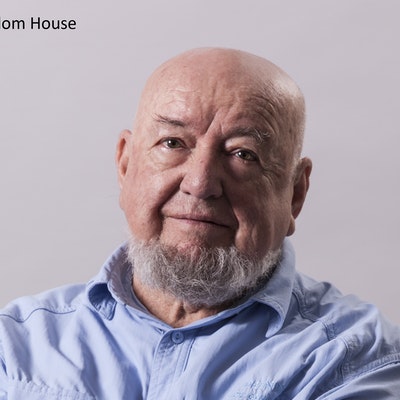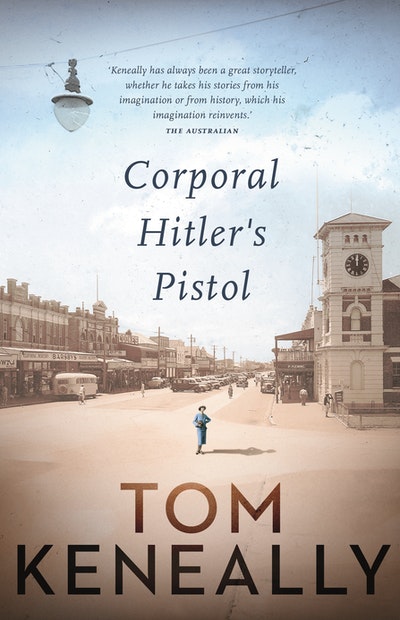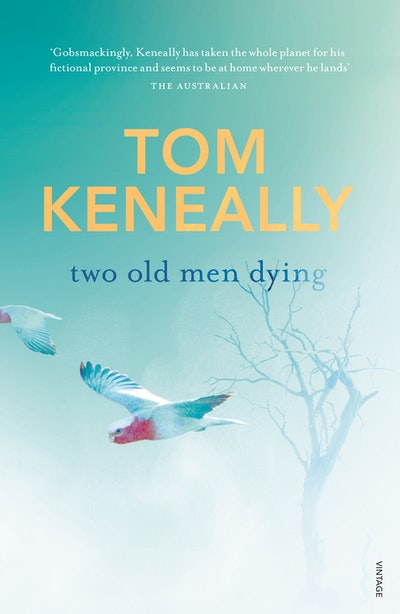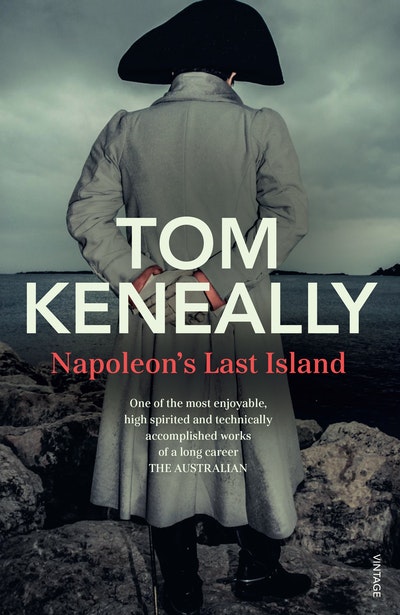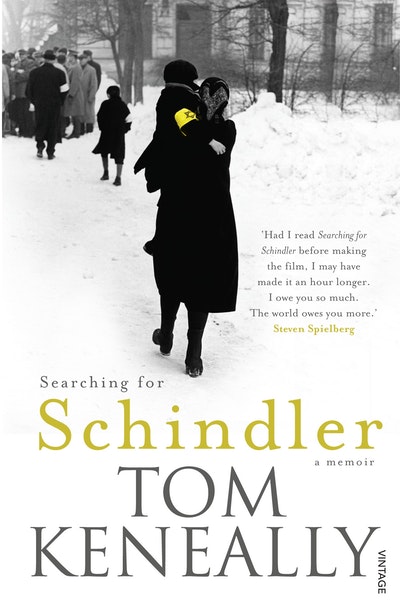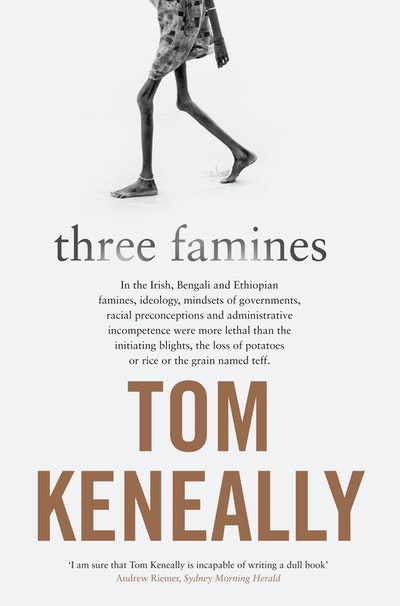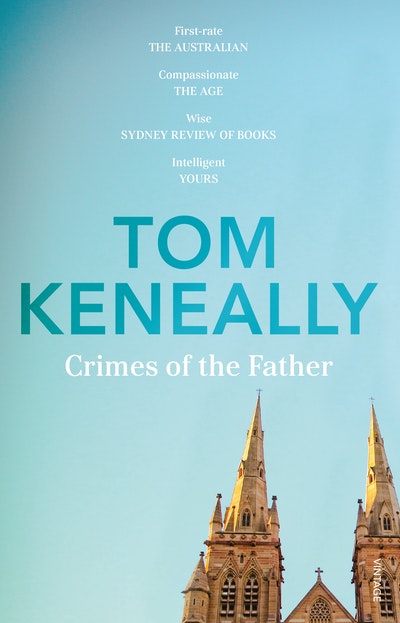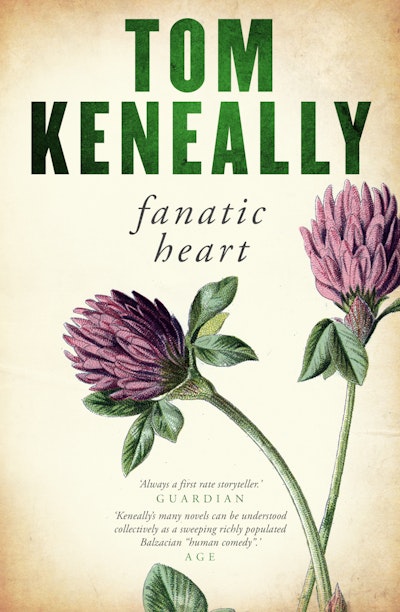- Published: 1 November 2013
- ISBN: 9780857980991
- Imprint: Vintage Australia
- Format: Trade Paperback
- Pages: 400
- RRP: $39.99
Shame and the Captives
The Tom Keneally Collection
- Published: 1 November 2013
- ISBN: 9780857980991
- Imprint: Vintage Australia
- Format: Trade Paperback
- Pages: 400
- RRP: $39.99
I’ve read only a dozen or so of the 30 or more novels Keneally has written. This is at least as good as any of them, and better, I should say, than Schindler’s Ark. he narrative is gripping, slow-moving but absorbing for the first half and more of the novel, then fast-moving, exciting and appalling. The account of the break-out is horrifying, and one can’t think it could have been better done. Keneally is not a novelist who stints on action. Here he has made a remarkable, and largely successful attempt to get into the minds of people very different from himself, surely one of the marks of the true novelist. Tengan and his colleagues might, in the hands of a lesser novelist, have seemed absurd in their obsession with shame and their cult of death: Keneally’s imaginative understanding of them makes Tengan strangely sympathetic. This is a remarkable achievement.
Allan Massie, The Scotsman
Then he turns, with a virtuosity he has rarely matched, to giving us - through select, concentrated detail - a sense of the wider lives of the participants in this story, for all that our acquaintance with them is partial. Keneally's gift, and his blessing to the many hundreds of characters he has created, is always to find the extraordinary within the ordinary. Each of them rises out of and above their varying backgrounds: the class, religion, ambition that mark but do not define them. The title of the novel, Shame and the Captives, has a deliberate ambiguity and a measure of awkwardness that makes us pause to consider the moral complexity of yet another of Keneally's grand entertainments.
Peter Pierce, The Australian
He gives vivid human faces to the victims and the perpetrators of war. He weaves his magic and the reader falls under his spell. Keneally negotiates the separate and intertwining narratives with his usual elegance and skill.
Carmel Bird, The Guardian
Here, as in The Daughters of Mars and other relatively recent novels, there is an intelligence and a mastery of conventional modes of narrative. Shame and the Captives entertains and informs, and that alone is a considerable achievement.
Andrew Riemer, The Age
Keneally is, of course, famous for his ability to put a human face on both perpetrators and victims of war, but this novel excels in its haunting portrayal of not just individuals, but of the yawning chasm between the cosmologies they inhabit.
Bron Sibree, The West Australian
Beautifully written.
Jennifer Lyons, The Examiner, Launceston
At its most basic, Shame and the Captives is a retelling of the Cowra breakout. Something which was long overdue. But it is much more than that. Keneally cleverly (and effortlessly) divides his story into many sub stories and embeds his reader into each one. We mingle with Japanese POWs, hear their stories, feel their shame and share their frustrations; we are sent out to the farms as labourers with the Italian POWs; we wait out the war far from the frontlines with the British and Australian camp guards and officers; we share in the guilt and confusion of a woman who's trying to remember her captured husband's face whilst an attractive Italian POW labours away for her father-in-law in the sun outside her window. All the while trouble brews. We know the story of the Cowra breakout. We have never had it told like this.
John Purcell, Booktopia Buzz
Like all good historical fiction we are reminded that history does not happen to others in some remote place, history happens to all of us and every day. All in all a really enjoyable novel, I read in two days eager to find out how it all ended, even though I knew exactly how it was going to end. If you are a Tom Keneally fan expect the usual: well researched, multilayered novel on a fascinating topic where ordinary people take center stage. Shame and the Captives is also a kind of book that will probably make you want to discover a little bit more about this tragic episode in both Australian and Japanese history.
Anna O'Grady, The Reading Room
Shame and the Captives is a thought-provoking book that seems very timely. This year is the anniversary of the beginning of 'the war to end all wars'. There will be no escaping the memorialising of that conflict. But in this book, set in the somnolent winter sunshine of western NSW, Keneally has captured a side of military conflict that is rarely explored in historical novels set in wartime.
Lisa Hill, ANZ Lit Lovers
The writing is meticulous and utterly unshowy. The slumbrous, dour rhythms of country life and the mordant Aussie patois are just right. Individual relationships, homicidal or homely, counterpoint the public moments of tumult and fanaticism. It's a story that gathers momentum like a landslide. And, as usual with Keneally, it's rich with meditations on human failings and yearnings.
David Hill, NZ Herald
His incredible facility as a teller of tales, is undimmed. Rich, complex, deeply empathetic novel. Along the fault-lines of this violent event, Keneally locates his compelling study of the cultural differences of nations brought into conflict by war. Shame and the Captives is a tremendously accomplished novel, rich in character, detail and incident. It is the work of a master novelist who shows no sign of slowing down, and for this we should be grateful.
Kevin Power, The Sunday Business Post, Ireland
We are all prisoners, Keneally is telling us, of culture, relationships, the past. It is a tribute to his consummate skill as a fabricator of fiction that the final, apocalyptic shattering of the mirror feels inevitable.
Independent
An Australian prisoner-of-war camp in 1943 is the unexpectedly rich setting for Thomas Keneally’s intriguing new novel, based – like his best-selling Schindler’s Ark – on real events… Keneally skilfully weighs broad cultural questions against the concerns of the soldiers and community… In a supremely dramatic ending, it is impossible to guess the fate of any of the characters.
Mail on Sunday
Keneally’s fine novel gives us insight into how, over time…, imprisonment, even brutal imprisonment, can evolve into something worthy of the human race
John Sutherland, Times
masterly storytelling skill
Jake Kerridge, Sunday Express
We are all prisoners, Keneally is telling us, of culture, relationships, the past. It is a tribute to his consummate skill as a fabricator of fiction that the final, apocalyptic shattering of the mirror feels inevitable
James Attlee, Independent Radar
Thomas Keneally has constructed his latest novel around a framework of true events: the mass break out of Japanese PoWs from a camp in New South Wales. This intrinsically thrilling incident, triggered by a fascinating clash between mutually uncomprehending cultures is an obvious gift to a writer. Keneally spotted both the tale and its possibilities, which in itself is a truly enviable talent. So much is vivid and intriguing that Shame and the Captives is almost consistently gripping.
Caroline Moore, Spectator
Keneally evokes the brisk pace of wartime life well while never losing sight of the private dreams of his characters. His writing is remarkably evocative.
Leyla Sanai, Independent on Sunday
As he states in his introduction: "Fiction has always tried to tell the truth by telling lies." On the evidence of this book, and at 78 years of age, Keneally remains one of the most compelling liars on the planet.
Alfred Hickling, The Guardian (UK)
